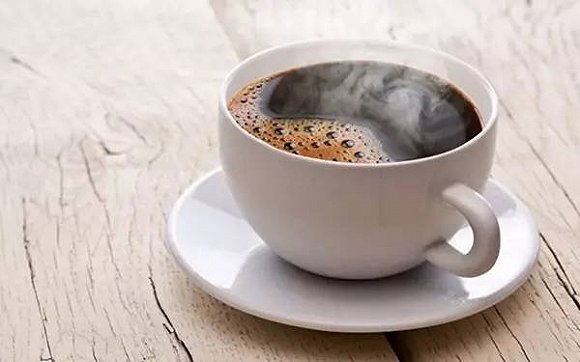Is coffee good or bad for your health? Here's the answer!

For professional baristas, please follow the coffee workshop (Wechat official account cafe_style)
Is coffee good or bad for your health?! Will you die if you just give me a definite answer?!
It is believed that countless coffee lovers who are interested in popular science will shout this sentence from the bottom of their hearts after paying attention to health information about coffee for decades:
is bored to death. This one is good and that one is harmful. Is it over or not? '
Don't worry: it's over.
It does take a long time and a spiral of understanding to accurately study an object with a rigorous scientific attitude. For so many years before, they have been contributing to a relatively clear and responsible conclusion today.
If your time is precious, then you only need to read the following sentence in this article to OK:
Just don't forget to use filter paper when making coffee. Coffee is generally healthy.
From a global point of view, the United States ranks first in coffee consumption in the world, drinking about 3 trillion yuan a year. China's coffee consumption market is currently only about 70 billion yuan, but in terms of growth, China's coffee consumption is growing at an astonishing 20 per cent a year, compared with 2 per cent globally, according to the London International Coffee Organization.
But at the same time, some of the negative effects of coffee reported in the media are worrying, such as insomnia caused by drinking coffee, emotional instability, and even cancer caused by coffee. Quite a few people restrain their desire to drink coffee because of this information. So where is the truth?
The Harvard School of Public Health provides evidence-based dietary and nutritional information to clinicians, medical practitioners and the media. Take a look at some of the ideas about 'Coffee and healthy '. The source of the information is Dr. Rob van Dam, a professor in the department of nutrition of the college
■ references
Harvard School of Public Health "Ask the Expert:Coffee and Health "
Professor ① Dam's good news for coffee lovers
Professor Dam led researchers at Harvard University who studied the relationship between coffee drinking and mortality in about 130000 healthy male and female volunteers.
When the study was carried out, the subjects were all about 40-50 years old. It has been tracked for 18 to 24 years since this age group. During this long period, the subjects' coffee consumption, daily diet and living habits, including death information, were recorded one by one. The results showed that coffee was not associated with the risk of any cause of death, including cancer and cardiovascular disease. And even those who drank six cups of coffee a day did not increase the risk of death. In other words: drinking coffee regularly does not affect the health of the general population.
■ references
American College of Physicians. "The Relationship of Coffee Consumption with Mortality "
So here's the problem:
Why ② coffee is not harmful to this point, can become an important research result?
This is because drinking coffee has been considered as an unhealthy habit similar to smoking and drinking for a long time. Therefore, there are many people who love coffee very much, but deliberately reduce the frequency of drinking coffee, and some even try to quit coffee. From this point of view, it is of great significance to correct the name of coffee.
③, if you drink coffee every day, how much is the limit?
If there are unpleasant feelings such as tremor, insomnia, anxiety and tension after drinking coffee, it is obviously drunk too much. Without these problems, even if you drink up to six cups of coffee a day, as shown above, it will not cause a particular burden or impact on the human body.
But it's important to note the definition of a cup of coffee: basically all studies of coffee use an 8-ounce cup containing 100 milligrams of caffeine. So it depends on what cup you use: a smaller teacup is only 150ml, while some large Mug Cup cups may have about 250ml-300ml. It may be too much to drink six large cups with this kind of mug.
It is also important to note that the coffee consumed in most studies was either Black Coffee or with only a small amount of sugar milk. If you drink too much coffee with too much sugar milk, it may lead to obesity or diabetes, which must be careful.
Does ④ suggest that coffee is good for you?
In the past few years, reports have emerged that drinking coffee may prevent diseases such as type 2 diabetes, Parkinson's disease, liver cancer and liver cirrhosis. Professor Dam's study also found that regular coffee drinkers had a slightly lower risk of dying from cardiovascular disease than those who drank little coffee.
However, it is noted that the controversy in this field is still very fierce, and both parents-in-law have their own reasons. Therefore, at this stage, people who do not like coffee can not advise the other person to drink it on the grounds that it is good for health.
But on the other hand, in addition to special groups such as pregnant women and patients with chronic diseases whose blood pressure and blood sugar need to be controlled, it can already be said that coffee is a healthy drink (again, the so-called coffee refers to black coffee or coffee with only a small amount of sugar milk).
⑤ Why are there opposites of views among scientists?
Many people think that coffee is just a drink containing caffeine. But this is not the case: coffee is a drink with extremely complex ingredients. Because of this, drinking coffee can have diversified effects on health. But this actually means a little bit of nonsense: not only coffee, but most foods contain complex ingredients-foods with simple ingredients are almost non-existent.
Therefore, at present, some studies focus on the effects of coffee on health, such as the impact of coffee on the risk of diabetes. There are also ways to examine the overall health effects of coffee: professor Dam mentioned earlier looked at the long-term effects of coffee on mortality.
The study of coffee is more complicated than ordinary food. That's because coffee drinkers are mixed: some smoke, some lack exercise, some are out of balance. In early studies, it was difficult to rule out this habitual distraction, which led to coffee being thought to increase the risk of certain types of cancer or heart disease for decades, even if there were actually other distractions. It is for this reason that coffee has been included in the blacklist of class 2B carcinogens, that is, substances that are likely to cause cancer in humans (Probably Carcinogenic to Humans), during the 25-year period from 1991 to 2016 by the World Health Organization (WHO) 's authoritative International Agency for Research on Cancer (IARC). But last year in 2016, IARC finally rehabilitated coffee by removing it from the blacklist of category 2B carcinogens for a simple reason: insufficient evidence of carcinogenicity. Despite the vindication, poor coffee has been wronged for 25 years, two and a half times longer than the Cultural Revolution. I wonder how many coffee lovers have forced themselves to stay away from this legendary drink with a long history because of fear of the blacklist of 2B carcinogens. It's a pity to think of it.
What is the latest ⑥ study on the risk of coffee and caffeine during pregnancy?
It is still controversial and there is no definitive conclusion that women who drink a lot of coffee or caffeine during pregnancy may increase the risk of miscarriage. However, it is true that caffeine can affect the fetus through the placenta, and the fetus is extremely sensitive to caffeine. Therefore, it is generally believed that women should limit their coffee to one cup a day during pregnancy.
Should ⑦ patients with hypertension or diabetes reduce their coffee or caffeine intake?
People who have never touched caffeine do have a rise in blood pressure after consuming caffeine. But once you start exposure to caffeine, less than a week after intake, the rise in blood pressure is no longer significant.
However, after weeks of caffeine intake, the rise in blood pressure is sometimes left over.
If there is no high blood pressure, caffeine will not have any effect on blood pressure. But if you already have high blood pressure and are controlling your blood pressure, it's best to try decaffeinated coffee.
As for diabetes, it presents a paradox. Many studies have suggested that people who drink more caffeinated or non-caffeinated coffee have a lower risk of type 2 diabetes. However, in the acute attack of diabetes, no matter what kind of coffee you drink, if you eat foods with high glucose content after drinking coffee, insulin sensitivity will decrease, causing blood sugar to rise higher than expected.
There is no long-term observed data on the link between coffee drinking and blood sugar control. But diabetics might as well try decaf to see if it has a beneficial effect on blood sugar. Instead of touching both regular coffee and decaf coffee, try switching from regular coffee to decaf coffee first, because there are reports that decaf coffee can suppress blood sugar.
Why is there a paradox in the health effects of ⑧ coffee?
One reason may be to confuse the effects of caffeine itself with those of caffeinated coffee.
For example, in terms of improving exercise ability, caffeine intake is beneficial to some extent. But what we're talking about at this time (that is, what really works) is actually caffeine, not caffeinated coffee.
In addition, comparing the effects of caffeine and caffeinated coffee, although caffeinated coffee can cause a rise in blood pressure, the effect here is actually much weaker than the model considered purely in terms of the amount of caffeine it contains. Similarly, there are similar differences in the effects of drinking coffee after meals and caffeine intake on blood sugar.
The explanation in simple words is that coffee may contain some substance that counteracts the effects of caffeine. More research is needed on this point in the future.
⑨ coffee filter paper filtered coffee is healthier?
Coffee contains a substance called Cafestol, which increases the level of LDL (commonly known as bad cholesterol) in the body. Caffeine is found in the oily components of coffee.
If you use coffee filter paper after brewing coffee, caffeine will be left on the filter paper. Generally speaking, the content of caffeine in coffee will be much higher than that of filtered coffee because there is no filtration link in French press, Turkish coffee and so on. So people who care about their cholesterol levels can choose to use filter paper to make coffee or drink instant coffee.
What about Italian espresso (Espresso), which is used in a variety of fancy coffee bases? Espresso has lower levels of caffeine than French presses and Turkish coffee, but higher than brewed coffee filtered with filter paper.
But anyway, on the whole, coffee can be said to be a healthy drink. Friends who like to drink coffee might as well enjoy it at ease. On the other hand, women who are pregnant and those who need to control their blood pressure and blood sugar should pay attention to controlling the amount and quality of coffee they drink (adding less sugar and milk, drinking as much pure black coffee as possible, or considering switching to non-caffeinated coffee) to make their coffee more healthy.
What last night's Fern Sutra wanted to tell you is how rare healthy foods and nutritional supplements really stand the test of evidence in the world. What tonight's Fern Sutra wants to tell you is that there is a healthy food with stronger evidence and greater potential that may come without effort-it is right next to you, and the price is so cheap and friendly that it is not difficult for anyone to drink. Its name is: coffee.
At least, if you are a coffee lover today, no matter how strong the evidence of the actual health benefits of coffee is, as long as the right amount is not too much, do not make yourself uncomfortable, you can drink whatever you want, you can drink freely!
Important Notice :
前街咖啡 FrontStreet Coffee has moved to new addredd:
FrontStreet Coffee Address: 315,Donghua East Road,GuangZhou
Tel:020 38364473
- Prev

More than 0.04%! Nantou coffee evaluation fragrance for two days
Professional baristas please follow the coffee workshop (Wechat official account cafe_style) 107 Nantou County Coffee Evaluation Competition was launched in Guomixiang today. 42 coffee products from all over the county participated in the competition. The whole process was strictly screened according to the cup testing standards of the American Fine Coffee Association (SCAA). 12 pieces of the water washing group and 6 pieces of the special treatment group entered the final, Yu Jiayan, director of the National Farmers' Association.
- Next

[coffee tablets] Geisha coffee beans made in Taiwan?!
Exchange of professional baristas Please follow coffee in the coffee workshop (Wechat official account cafe_style) Coffee enthusiasts all know that Geisha (geisha) coffee beans in Panama have caused competition among countries to buy coffee beans because of their scarce production, resulting in high prices of coffee beans. Some coffee industry in Taiwan brought back geisha beans from the origin of Panama to Taiwan for trial planting. After 5 years of efforts, they have achieved good results in Taichung.
Related
- Can I make coffee a second time in an Italian hand-brewed mocha pot? Why can't coffee be brewed several times like tea leaves?
- Hand-brewed coffee flows with a knife and a tornado. How to brew it? What is the proportion of grinding water and water temperature divided into?
- What is the difference between Indonesian Sumatra Mantinin coffee and gold Mantinin? How to distinguish between real and fake golden Mantelin coffee?
- What does bypass mean in coffee? Why can hand-brewed coffee and water make it better?
- Unexpected! Ruixing Telunsu lattes use a smoothie machine to foam milk?!
- % Arabia's first store in Henan opens into the village?! Netizen: Thought it was P's
- Does an authentic standard mocha coffee recipe use chocolate sauce or powder? Mocha Latte/Dirty Coffee/Salty Mocha Coffee Recipe Share!
- What is the difference between Vietnam egg coffee and Norway egg coffee? Hand-brewed single product coffee filter paper filter cloth filter flat solution!
- What is the difference between sun-cured and honey-treated coffee? What are the differences in the flavor characteristics of sun-honey coffee?
- How to make Italian latte! How much milk does a standard latte use/what should the ratio of coffee to milk be?

